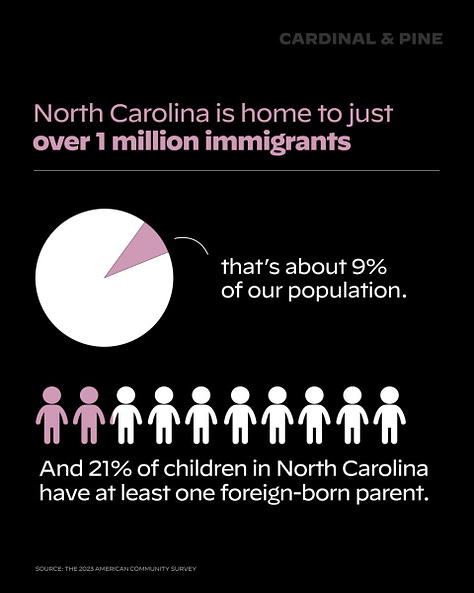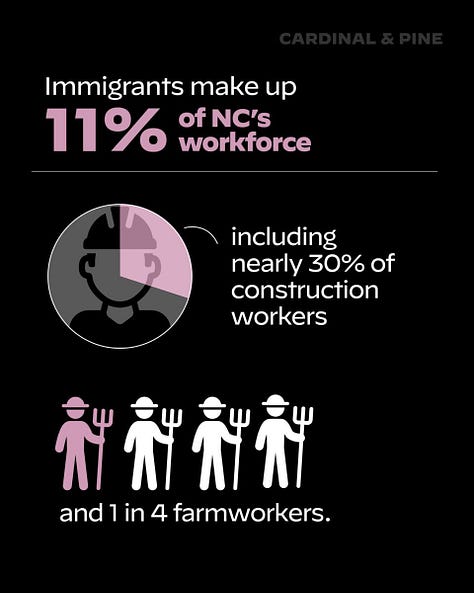Upcoming Senate vote could turn rural NPR into Trump News Network
ALSO INSIDE: Protestors shut down streets, block off Palantir offices for ‘profiting from genocide’
Cam here 👋 bringing you your daily dose of what people are doing – good, bad, and otherwise – in the world of politics. We’re diving into the stories you won’t see anywhere else. And remember, you can also keep up with me on TikTok and Bluesky.
And if you’re looking for a little more from COURIER, Akilah Hughes goes down the tradwives, MAHA, and women’s wellness pipeline in the latest episode of “How is This Better?”
Since day one of Trump’s political career, people have desperately attempted to normalize his absurd abuses of power and blatant corruption – and 10 years later, much of corporate media remains a victim of their own attempts to return to a sense of normalcy.
It’s time to stop sane-washing the insanity.
What Happened
The US Senate votes this week on a Project 2025 initiative that would allow the Trump administration to take control of broadcast news outlets that receive government funding and use them as a propaganda arm of the executive branch.
The roadmap has been drawn with Kari Lake’s takeover of Voice of America. The government outlet’s pro-democracy reporting has been replaced with pro-Trump stories from One America News Network.
But, far from identifying this as an assault on the free press, even the newsrooms directly affected portray the vote in the most bureaucratic terms possible: over a procedural recissions bill that would approve budget cuts recommended by DOGE. While PBS and NPR have concurrent campaigns running that urge “viewers like you” to call their representatives and ask them to vote against these detrimental cuts, the message is undercut by their own passive reporting on the subject.
As I’ve written about extensively, it’s not the corporations PBS and NPR that would be hit hardest. The worst of these cuts would be seen by small, locally-run radio stations in rural parts of the country. Hundreds of public broadcasters operate on minuscule budgets, a significant chunk of which come from Corporation for Public Broadcasting grants. When I spoke with Dave Riek, general manager for NPR affiliates KAWC and KOFA in Yuma, Arizona, he said those federal grants account for about 25% of the station’s total budget.

 Tiktok failed to load.
Tiktok failed to load.Enable 3rd party cookies or use another browser
Riek said his stations could survive the cuts, but outlets like KGHR, managed by Greyhill High School in Tuba City, would lose 72% of their funding. The station has less than $500,000 in annual expenses, but provides crucial services like the Emergency Broadcast System to the Navajo Nation and offers broadcast training to high school students that would otherwise be inaccessible.
“The amount of money that the federal government put into CPB, I think, last year was $500 million,” said Reik. “The value of those stations and the content that we are generating, the service we provide to communities, is worth probably ten times that.”
This week’s vote to cut that $500 million would escalate beyond closing stations like KAWC and KGHR, according to Project 2025’s section on media agencies. Once stations run out of money, the conservative “Mandate for Leadership” outlines how the Trump administration could take control of those stations’ call signs and broadcast frequencies, then replace the shuttered newsroom’s reporting with programming biased towards Trump.
Alternatively, local stations could take the ABC/CBS approach and opt to play ball: agree to what is outlined in Project 2025 and take programming directives from the White House. Such an agreement would allow stations to maintain local control without losing funding or their broadcasting licenses.
But for long-time journalists like Riek, who have operated independently for decades under Republican and Democratic administrations alike, government-directed programming is a nonstarter.
“That doesn't sound like something we would be interested in,” said Riek. “I don't think we would ever get involved with somebody who was making demands like that. That doesn't make sense.”
Attempts to Sanewash
Senate to vote to formalize DOGE cuts to public broadcasting, USAID
Global AIDS program PEPFAR saved from congressional funding cuts
Far-Right Spin
Speaker Johnson Puts Pressure On Waffling GOP Senators To Pass DOGE Cuts
A Senate vote this week will test the popularity of DOGE spending cuts
Protestors shut down streets, block offices of Palantir for ‘profiting from genocide’
Protestors opposed to data surveillance company Palantir’s unfettered access to millions of Americans’ personal information orchestrated acts of civil disobedience Monday outside of the company’s offices in five cities.
Organizers demanded that state and federal governments divest all public funds from Palantir, which has benefited from lucrative government contracts for decades, including initial seed funding from the CIA in 2005. The federal government has used Palantir to skirt Fourth Amendment violations, and was recently hired by the Trump administration to create a comprehensive database of all the data the government has on US residents.
Protestors were met with an aggressive police presence in several cities, leading to the arrest of four dissenters in New York and seven injured in Washington, DC. Daniel Koh, organizer with New York Alliance Against Racist and Political Repression, said those involved are undeterred and will continue applying pressure until the government cuts ties with Palantir.
“From the start, Palantir was envisioned as a weapon for the so-called war on terror,” said Koh. “The Palantir we see today in Gaza and deployed by ICE grew here, but that means New Yorkers already know their enemy and how to fight back. People will no longer accept being lied to. People will not sit back and let leeches like Palantir use our tax money to repress us.”
Palantir has signed nearly $1 billion in government contracts since Trump took office, primarily so they can aid ICE in identifying taxpayers agents can abduct, arrest, and deport. Their technology has also allegedly been used by Israel for AI targeting, which has been attributed to lethal strikes on humanitarian aid to Gaza. The attacks against civilians have caused divestments from Palantir by international investors who believe the company is committing human rights violations.
Protesters are now demanding that the US do the same.
"I’m appalled to learn that a company enabling both the genocide in Gaza and the deportation of immigrants is operating right here in our city — and that Washington’s public funds are invested in it,” said Peter Lippman, Jewish Voices for Peace. “Washingtonians deserve to know that Palantir is making millions off of death and surveillance. The Washington State Investment Board must divest now."
US Rep. Bryan Steil, Wisconsin’s 1st Congressional District
Since taking office in 2019, Rep. Steil has:
Seen his net worth quadruple from $50,000 to $2 million
Condemned the Jan. 6 Insurrection
Voted against Trump’s impeachment over his incitement of the Jan. 6 Insurrection
Voted to codify same-sex marriage into law
Signed an amicus brief urging the US Supreme Court to overturn Roe v. Wade
Hired an organizer in Arizona’s fake elector scheme to lead election oversight
Fun Facts
Steil’s pre-political background lies in manufacturing, but not as a blue collar worker. He was an industry executive for nearly a decade, and stayed true to management roots, opposing worker rights at every opportunity. Steil voted to limit access to trade labor jobs, defund the National Labor Relations Board, prohibit companies — like COURIER — from voluntarily recognizing its employee’s union, and voted against strengthening worker and union rights through the PRO Act.
Former congressman and current Fox Corporation board member Paul Ryan gave Steil his first job in politics, and has been attributed with molding him in his own likeness. Steil’s since been downgraded from protege to bargain bin Ryan, as Wisconsin’s replacement policy wonk “has only a tiny fraction of the power and nowhere near the state and national name recognition that Ryan had.”
Trump’s mass incarceration plan would jail 11% of North Carolina’s workforce
Story from COURIER / Cardinal & Pine reporter Jessica Simmons






The Trump administration is ramping up immigration enforcement, pushing for 3,000 arrests a day nationwide.
That’s raising alarms for North Carolina businesses that rely on immigrant workers — especially in farming, hospitality, and construction. Immigrants make up 11% of North Carolina’s workforce.
Shawn Harding, North Carolina Farm Bureau president, told Axios that “many farmers could not operate without seasonal labor, and that they must have a dependable guest worker program that assures them an affordable, legal workforce.” Scroll below for an important breakdown of what Trump’s immigration crackdown means for NC’s workforce.
Advertise in this newsletter
Do you or your company want to support COURIER’s mission and showcase your products or services to an aligned audience of 190,000+ subscribers at the same time? Contact advertising@couriernewsroom.com for more information.









